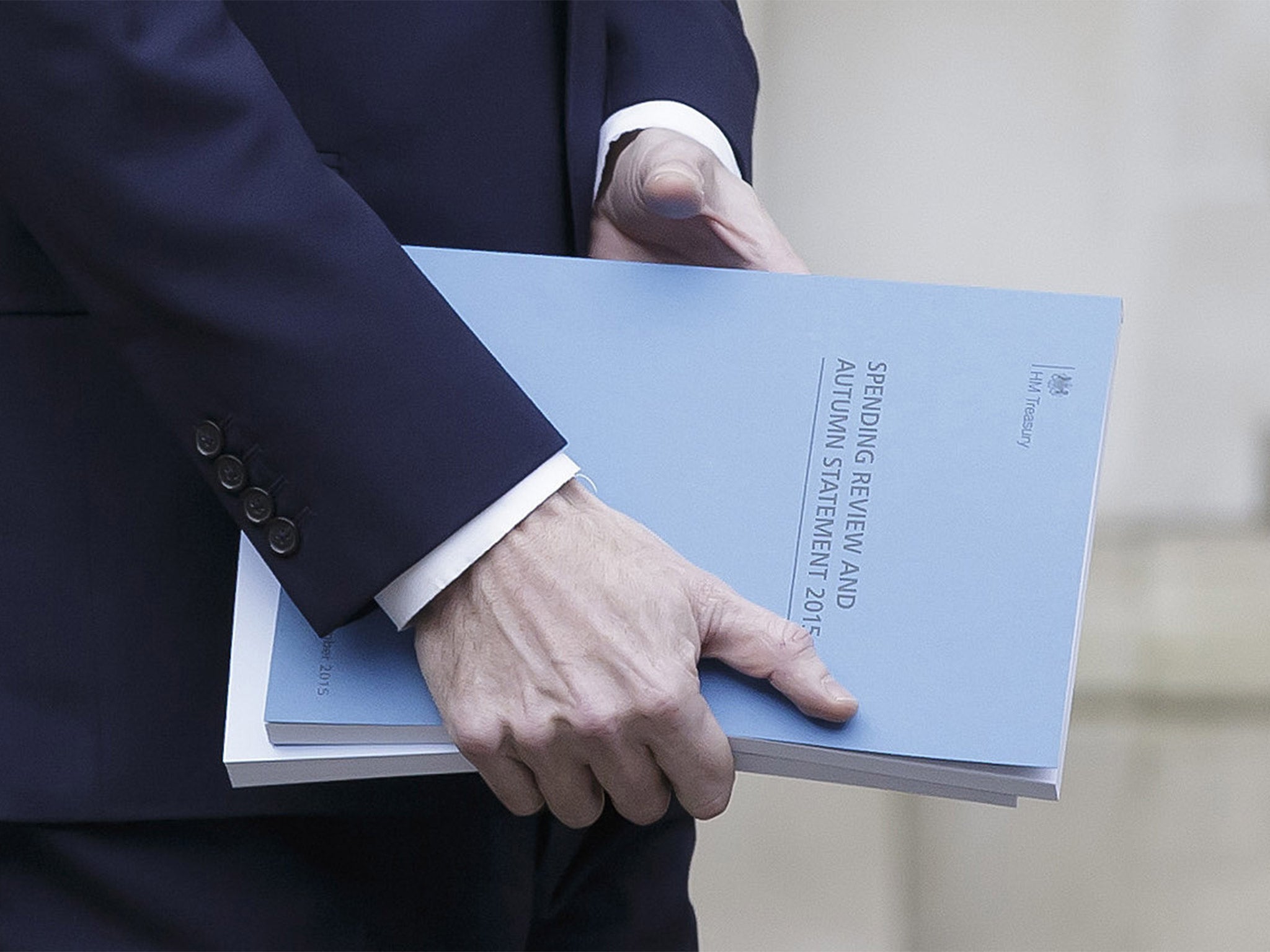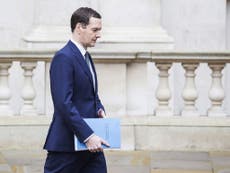The most heartening lesson from the Autumn Statement is that even when the main opposition party is as shambolic as today’s Labour Party, public opinion can still force the Government to abandon a bad policy. The announcement that will have the most immediate impact is that George Osborne has been forced to call off an assault on the incomes of Britain’s lowest-paid workers.
It was the Chancellor’s good fortune that he arrived in the House of Commons armed with a forecast from the Office for Budget Responsibility for stronger growth, lower borrowing costs than expected and higher tax receipts, with the result that public finances will be £27bn better off than expected during the course of the parliament. That was his face saver, which allowed him to dress his climbdown as a reaction to changed circumstances. All the same, it was a climbdown – and a very welcome one.
But the Chancellor is still committed to £12bn worth of welfare cuts by 2020. This means that families will be severely hit when the changeover to universal credit comes about. The virtue of tax credits is that they ensure the low paid are better off in work than out of work, so increasing the incentive to work. Cuts in universal benefit could have the opposite effect.
Safety in police numbers
The other extraordinary U-turn is over the proposed cuts to the police service, which were becoming increasingly hard to justify after the appalling events in Paris. “The police protect us, and we’re going to protect the police,” said the Chancellor, insouciantly, as if he had forgotten that until 25 November, the person from whom the police most needed protecting was him. Police chiefs had been warned to expect cuts, but they are not going to happen this year. That is good.
But, of course, Mr Osborne doesn’t want this Autumn Statement to be remembered for its U-turns. He would much prefer it to be said that it was a budget which promised steady progress towards reducing government debt, and which had helped to tackle the housing crisis.
His target of building 400,000 new homes is ambitious, and yet if we accept that the country needs 300,000 new homes a year, all Mr Osborne is promising is to meet 16 months’ demand in five years. Also his attitude, apparently, is that it is acceptable to invest in “affordable” homes for people who are almost, but not quite, in a position to buy into the housing market, but it is not acceptable to invest in social housing for those with no hope of ever owning.
A Chancellor under pressure
Another sign that the Chancellor is receptive to political pressure is his announcement on the so-called “tampon tax”. More than 270,000 people signed a petition calling for the scrapping of VAT on sanitary products. EU rules do not allow the Government to go below 5 per cent, but the Chancellor has promised that the money it raises will go to charities that promote women’s health or combat domestic violence. It is a shame, though, that he spoiled that announcement by lazily comparing it to the way fines imposed in the wake of the Libor banking scandal are dispersed. The two are not comparable.
Chaos in social care
It is good that an extra £2bn a year, approximately, will be on tap for the care of a growing population of the elderly, too many of whom are kept in hospital unnecessarily because there would be no support for them at home. But the manner in which this money is being raised, through an increase of up to 2 per cent in council taxes, is chaotic and does not allow for local variations. The consultants iMPOWER have calculated that in Richmond and Rutland, the sums available for adult social care could rise by almost 5 per cent, but in Liverpool and Newcastle, it will be less than 2 per cent.
And at the same time as Mr Osborne is making councils spend more on this one source of need, he is cutting the grant that councils receive from central government from £11.5bn this year to £5.4bn in 2019-20 – an eye-watering 56 per cent cut. Mr Osborne claims that local government is actually being hit less hard than some other departments, because their income from council taxes and business rates will go up, and the Government is pressuring them to sell off assets and cap the salaries of their senior officers. Limiting the pay of chief executives is a token gesture at best, and flogging off council-owned land and buildings is not a sustainable way of funding local services over the long term. Though it is good that councils are becoming progressively less reliant on the Government, and more on locally raised income, they are still constantly required to do more on less money.
A disappointing statement
It is also good that the Government is providing extra money for part-time students, but for other students, already burdened by the huge increases in tuition fees imposed by the Coalition Government, the news is all bad. When student fees were hiked up in 2012, it was promised that graduate repayments would be delayed until incomes reached £21,000, a threshold that they were told would rise every year in line with earnings. Mr Osborne has now reneged on that promise; they will start paying sooner, and each will pay an average of £6,000 more.
Also buried was a mean little measure. The Short Money, which pays the salaries of advisers working for the opposition party, is being cut. This measure was originally brought in by a Labour government for the benefit of the Conservatives. The £8.4m the government spends on special advisers for Conservative ministers is not affected: it is simply an attack on the money available for the Labour Party, already eroded by trade union legislation.
The Chancellor is undoubtedly a clever politician. He showed that with his wise decision to give way to public pressure over tax credits. But he has not changed his overall strategy of making the cost of setting public finances straight fall most heavily on those who can least afford it. It was a very disappointing Autumn Statement.



Join our commenting forum
Join thought-provoking conversations, follow other Independent readers and see their replies